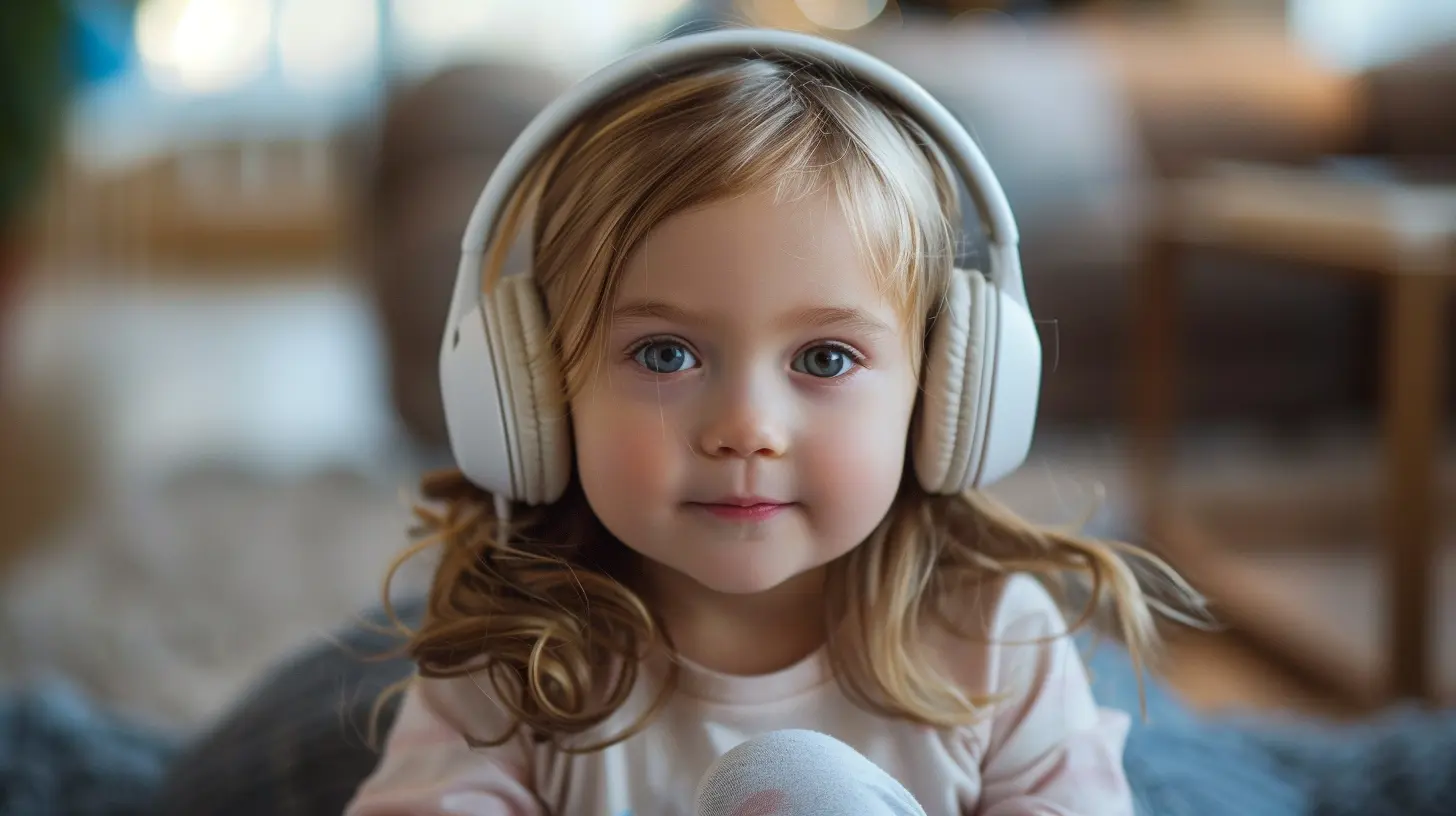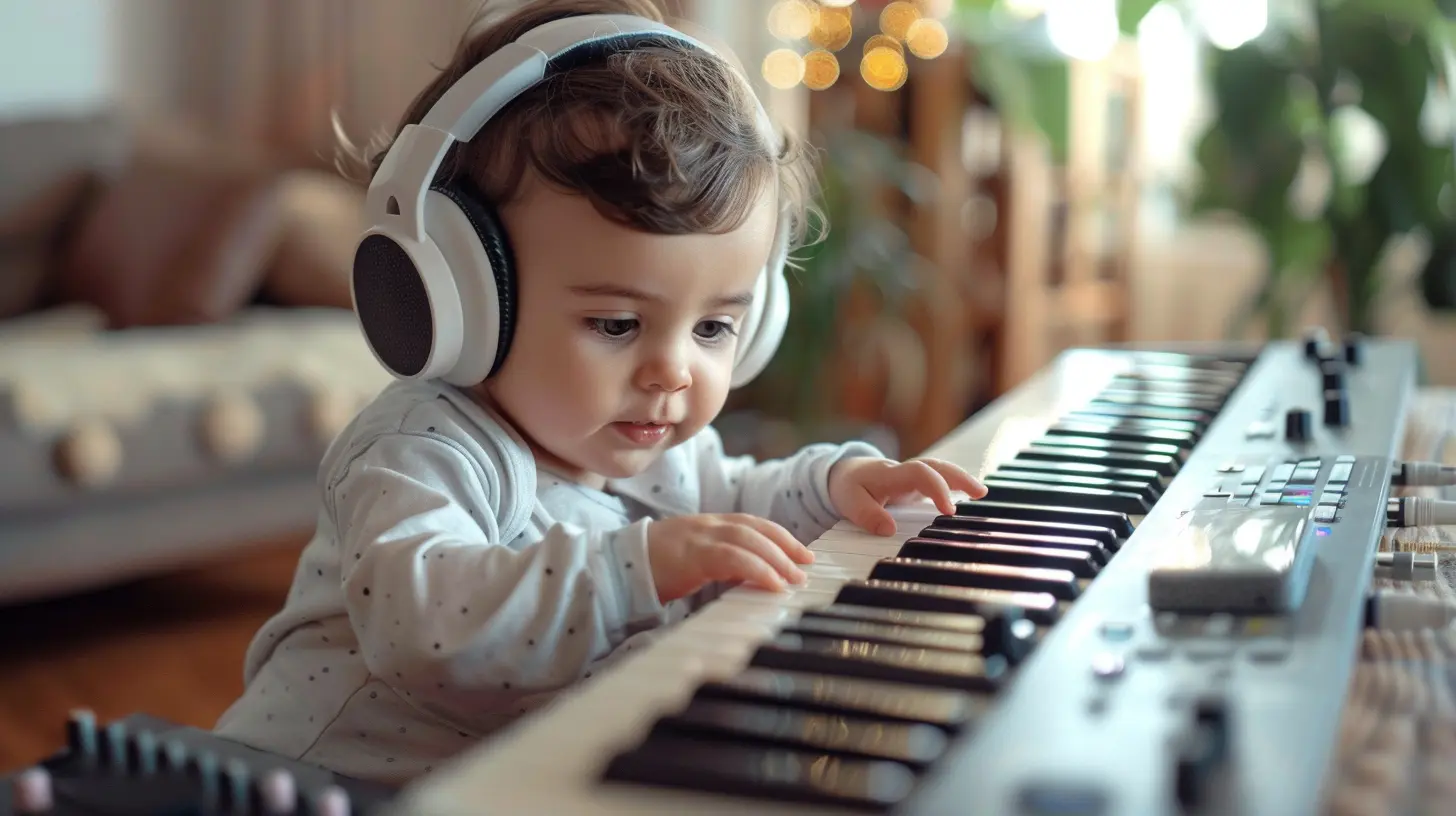The Impact of Music on Cognitive Growth in Childhood
6 September 2025
Music has been an integral part of human culture for centuries. From lullabies that soothe infants to classical compositions that inspire creativity, music shapes how we think, feel, and understand the world. But did you know that music plays a crucial role in a child's cognitive development?
Studies suggest that engaging with music, whether through listening or playing an instrument, can significantly enhance a child’s intellectual abilities. But how exactly does music influence cognitive growth in childhood? Let’s dive in!

How Music Stimulates the Brain
Our brains are wired to respond to music. When a child listens to or creates music, multiple brain regions activate simultaneously. This engagement strengthens neural connections and supports essential cognitive functions like memory, attention, and problem-solving.Think of the brain as a muscle—the more it exercises, the stronger it becomes. Music, in this sense, is like a full-body workout for the brain, enhancing its efficiency and adaptability.
1. Enhancing Memory and Recall
Have you ever noticed how easily kids remember nursery rhymes? That’s because music strengthens memory. Songs incorporate repetitive patterns and rhythms, making it easier for children to absorb and retain information.Research suggests that children who engage in musical activities tend to develop better memory skills, which can translate into improved academic performance in subjects like math and language.
2. Improving Language and Communication Skills
Music and language are deeply connected. When children sing songs, they’re not just having fun—they’re also improving their vocabulary, pronunciation, and comprehension.Songs often contain rhyming words, repetitive phrases, and diverse sentence structures, helping kids recognize speech patterns. This is especially beneficial for toddlers as they begin forming their first words.
Moreover, studies show that children who play musical instruments often develop a more advanced understanding of syntax and grammar compared to their non-musical peers.
3. Boosting Focus and Concentration
Kids are naturally curious, but keeping their attention on one task can be challenging. Music can help!Playing an instrument or following a melody requires concentration. Over time, this strengthens a child’s ability to focus on other cognitive tasks, whether it’s solving math problems or reading a book.
Classical music, in particular, is known for its effect on focus. The "Mozart Effect" suggests that listening to Mozart's compositions can temporarily enhance cognitive function, although any structured musical activity can provide similar benefits.

The Role of Music in Emotional Development
Cognitive growth isn't just about problem-solving or memory. A child’s emotional well-being is equally important, and music plays a key role in shaping emotions and social interactions.1. Music as a Stress Reliever
Ever noticed how a soft melody can calm a fussy baby? That’s because music has a direct impact on emotions. Listening to soothing music reduces cortisol (the stress hormone) and promotes relaxation.For older children, music can serve as an emotional outlet. Kids experiencing anxiety or frustration may find comfort in singing, dancing, or playing an instrument, helping them express emotions they might struggle to articulate verbally.
2. Encouraging Social Skills
Music is inherently social. Group activities like singing in a choir, playing in a band, or even dancing to a song teach children essential skills like coordination, cooperation, and teamwork.When kids make music together, they learn to listen, take turns, and respect others' inputs—skills that benefit them in all areas of life.

Music and Academic Performance
Parents often wonder: "Can music really make my child smarter?" The answer is a resounding yes!1. Math and Music: A Perfect Pair
Believe it or not, music and math go hand in hand. Understanding rhythms, beats, and measures involves recognizing patterns—just like solving equations or decoding sequences in mathematics.Studies show that children exposed to musical training tend to perform better in math compared to those who aren’t. Why? Because music enhances spatial-temporal reasoning—the ability to visualize and manipulate objects in space, a crucial skill in subjects like geometry and physics.
2. Better Reading and Comprehension Skills
Music also enhances literacy skills. Singing along to songs improves phonemic awareness—the ability to distinguish different sounds in words—which is fundamental for reading development.Additionally, children who learn to play instruments develop stronger hand-eye coordination, which supports essential writing skills.

How to Incorporate Music into a Child’s Life
Now that we know how beneficial music is, how can we ensure children reap its rewards? Here are some easy ways to integrate music into daily routines:1. Start Early with Lullabies and Rhymes
Babies may not understand words, but they respond to melodies. Singing lullabies and simple rhymes can enhance a child’s auditory processing skills from infancy.2. Encourage Singing and Dancing
Turn on some music and have a fun dance session with your child! It’s a great way to improve coordination, rhythm, and self-expression.3. Introduce Musical Instruments
You don’t need a grand piano or a violin to start. Simple instruments like xylophones, drums, or even a ukulele can provide valuable musical exposure.4. Make Learning Fun with Educational Songs
Struggling to teach numbers, alphabets, or days of the week? Turn them into songs! Kids absorb information faster when presented in a musical format.5. Enroll in Music Lessons
If your child shows a keen interest in music, consider enrolling them in music lessons. Learning to play an instrument enhances discipline, patience, and cognitive skills.Final Thoughts
Music is more than just entertainment—it’s a powerful tool that shapes a child's brain, enhances cognitive abilities, and nurtures emotional well-being. Whether it’s singing lullabies, playing an instrument, or simply enjoying a tune, incorporating music into a child’s life sets the stage for lifelong learning and growth.So, the next time you turn on a song, remember: you’re not just having fun—you’re helping a young mind flourish!
all images in this post were generated using AI tools
Category:
Cognitive DevelopmentAuthor:

Ember Forbes
Discussion
rate this article
1 comments
Gabriel McPhee
Great article! It's fascinating to see how music can shape cognitive development in kids. Encouraging musical experiences could unlock so much potential in young minds!
October 6, 2025 at 4:51 AM

Ember Forbes
Thank you! I'm glad you found the article insightful. Music truly has a remarkable influence on children's cognitive development.


